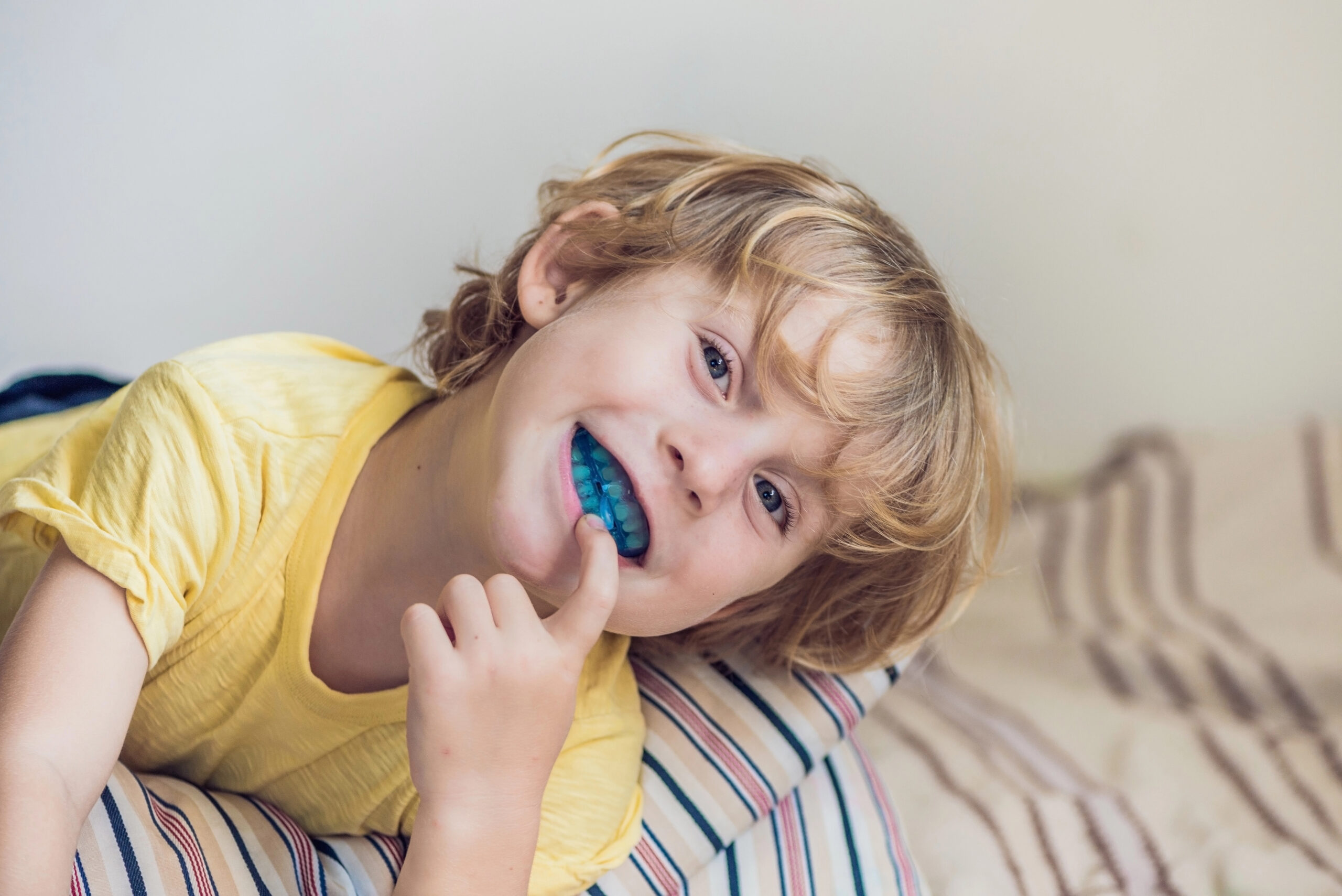Teeth Grinding in Kids: What Parents Need to Know
Hearing the sound of your child grinding their teeth at night can be unsettling. Teeth grinding isn’t just something adults deal with, it’s surprisingly common among children too. While it might seem like just a harmless (albeit annoying) habit, teeth grinding in kids can create many problems in the long term.
At Brandon Smiles Dentistry, we’re here to help parents understand what causes teeth grinding in kids, when it’s a concern, and how to address it. By learning more about this condition, you can take the right steps to protect your child’s smile.
What is Teeth Grinding?
Teeth grinding is the act of clenching or grinding the teeth together, often unconsciously. It can occur during the day, but it’s more common at night when your child is asleep. While occasional grinding might not cause harm, frequent or severe grinding can lead to dental issues, such as worn enamel, tooth sensitivity, and even jaw pain.
In most cases, bruxism in children is temporary and resolves as they grow older. However, understanding the underlying causes can help you determine whether intervention is necessary.
What Causes Teeth Grinding in Kids?
The exact cause of teeth grinding in kids isn’t always clear, but several factors may contribute to the condition. One of the most common reasons is stress or anxiety. Like adults, children sometimes respond to stress by clenching their teeth, especially during sleep when they have no conscious control.
Physical factors can also play a role. If your child’s teeth are misaligned or they have an abnormal bite, it may lead to grinding. Additionally, medical conditions like sleep apnea, allergies, or ear infections can trigger bruxism in some children.
Teeth grinding can also be linked to teething or pain from erupting teeth. Younger children may grind their teeth as a response to discomfort, especially when their molars are coming in.
Is Teeth Grinding Harmful for Kids?
In many cases, teeth grinding in kids is harmless and doesn’t require treatment. However, if the grinding is severe or persistent, it can lead to problems over time. These include worn-down enamel, which makes teeth more vulnerable to cavities, as well as increased tooth sensitivity to hot or cold foods and drinks.
In some cases, bruxism can cause jaw pain or headaches, making it uncomfortable for your child to eat or speak. Chronic grinding can also affect the development of the jaw and alignment of permanent teeth, potentially leading to more complex dental issues in the future.
If you notice signs of damage to your child’s teeth or they complain of pain in their jaw or face, it’s a good idea to consult a dentist for an evaluation.
How to Recognize Teeth Grinding in Kids
Since teeth grinding often occurs during sleep, parents may not realize their child is grinding their teeth unless they hear it or notice physical signs. Common indicators of bruxism in children include:
- A grinding or clicking sound during sleep.
- Complaints of jaw pain, headaches, or soreness in the morning.
- Worn or flattened teeth that look shorter than usual.
- Increased tooth sensitivity.
- Difficulty chewing or opening the mouth fully.
If you suspect your child is grinding their teeth, keeping a diary of their symptoms or behaviors can help your dentist identify patterns and recommend appropriate treatment.
What Can Parents Do About Teeth Grinding?
The first step in addressing teeth grinding is to identify and manage potential triggers. If stress or anxiety seems to be a factor, talking with your child about their worries and creating a calming bedtime routine can help reduce grinding. Activities like reading a book, listening to soothing music, or practicing relaxation techniques can make a big difference.
For younger children experiencing discomfort from teething, over-the-counter pain relief or a cold teething ring can help alleviate their symptoms and reduce grinding.
If your child’s grinding is related to an underlying medical condition, such as sleep apnea or allergies, treating the root cause can often resolve the issue. Your dentist or pediatrician can provide guidance on managing these conditions.
For older children with severe or persistent bruxism, a custom night guard may be recommended. Night guards are comfortable, protective devices that fit over your child’s teeth and prevent damage from grinding.
When to See a Dentist
While occasional grinding isn’t usually a cause for concern, it’s important to seek professional advice if your child’s bruxism is frequent, severe, or causing noticeable symptoms. A dentist can evaluate your child’s teeth and jaw, identify any potential problems, and recommend the best course of action.
Regular dental check-ups are also essential for monitoring your child’s oral health and catching any issues early. By staying proactive, you can help ensure your child’s smile stays healthy and strong as they grow.
Stop Teeth Grinding With the Help of Brandon Smiles Dentistry
Teeth grinding in kids can be concerning, but it’s often a temporary phase that resolves on its own. By understanding the causes and recognizing the signs, you can take the right steps to address the issue and protect your child’s oral health. Whether it’s managing stress, alleviating teething discomfort, or seeking professional advice, there are plenty of options to help your child overcome bruxism.
At Brandon Smiles Dentistry, we’re here to support you and your family with expert dental care and personalized solutions. If you’re concerned about your child’s teeth grinding or want to schedule a check-up, book an appointment with us today!

